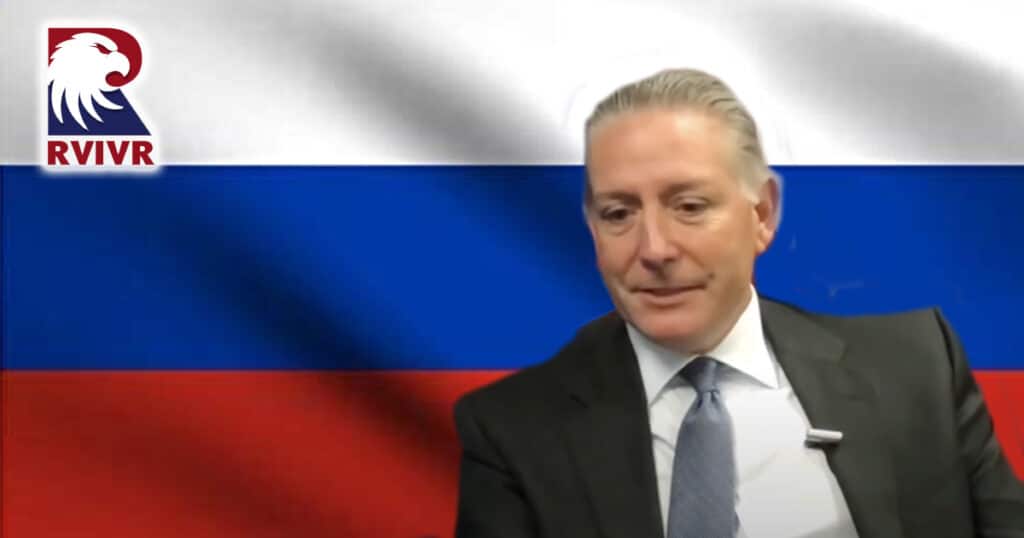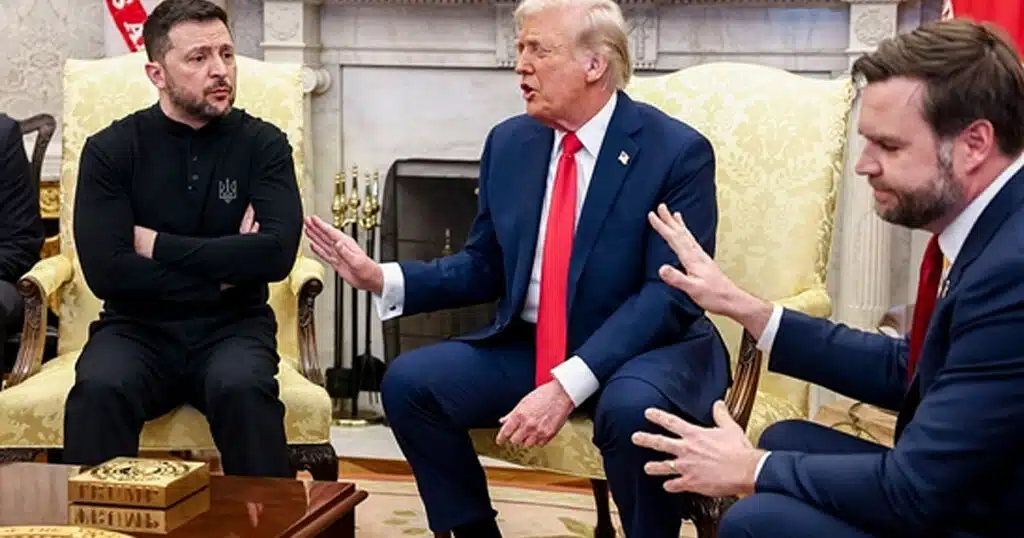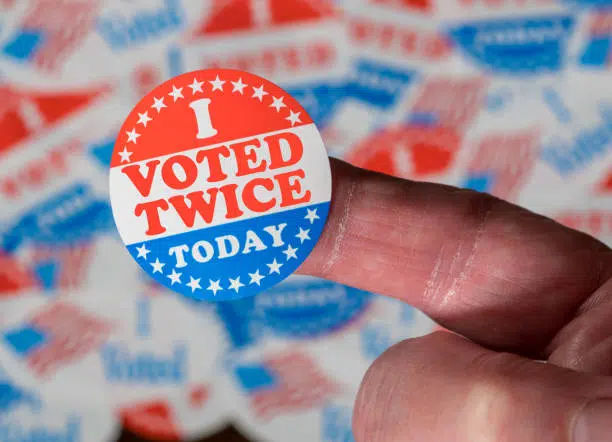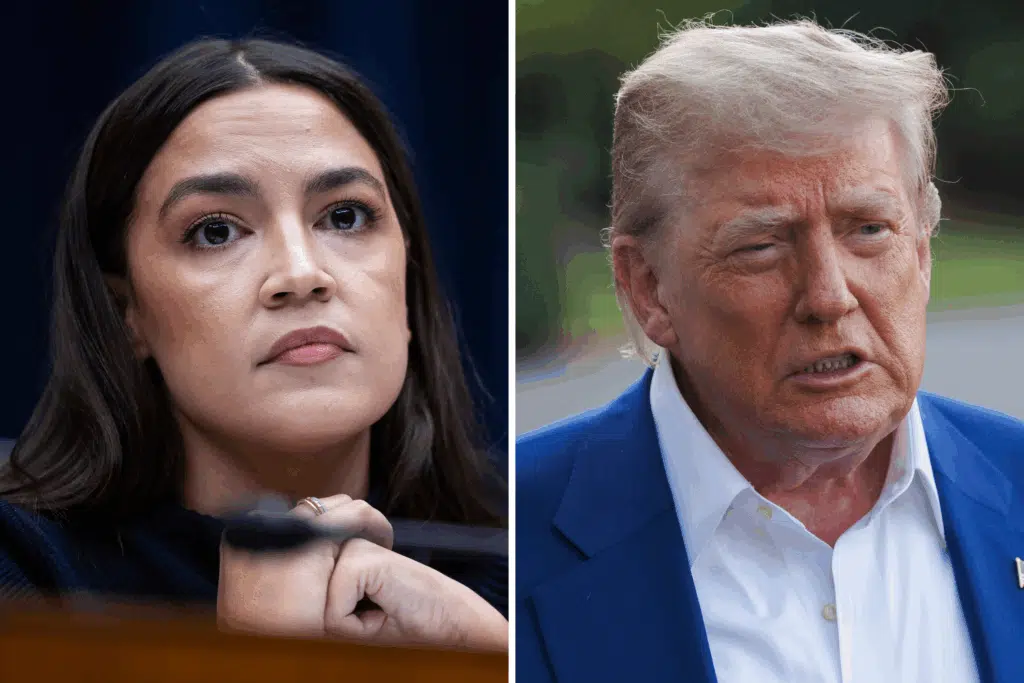
The Indictment of Charles McGonigal
One evening in May 2017, Charles “Charlie” McGonigal was about to take the stage to give a talk to the Foreign Policy Association when he learned that less than four months into his presidency, Donald Trump had fired FBI Director James Comey.
At the time, McGonigal was one of the most senior officials in the FBI – special agent in charge [SAC] of the bureau’s prestigious counterintelligence division in New York City. He let the audience know how much he would miss his boss: “Director Comey was probably one of the most loved leaders that we’ve had in a number of years commanding a leadership role in the FBI,” McGonigal told the crowd. “I think many of us who were nominated for leadership positions by him will forever hold him in esteem as we progress through our FBI careers.”
According to an indictment in the U.S. District Court for the Southern District of New York, the next significant step in McGonigal’s own FBI career was agreeing to work secretly for the powerful Russian oligarch Oleg Deripaska.
In the stylized jargon of the Department of Justice indictments, complete with its idiosyncratic capitalization, the indictment states flatly how McGonigal was recruited by a former Soviet diplomat, Sergey Shestakov: “In or about 2018, while McGONIGAL was still serving as SAC, SHESTAKOV introduced McGONIGAL via email to an employee and agent of Deripaska (‘Agent-1’).” Prosecutors maintain that McGonigal collected $225,000 from a sometime “employee of a foreign intelligence service” while serving as special agent in charge of FBI counterintelligence efforts in the New York Office. McGonigal retired from the FBI later that year, in September 2018.
It has widely been noted this week that McGonigal was a key player in the “Crossfire Hurricane” investigation that targeted Trump and his advisers. But what about after he left the FBI? It turns out that McGonigal would still have a visible role in intelligence and threat assessment, often at conferences he participated in or organized, even while working for the Russians.
After he left the FBI in 2018, the indictment alleges, McGonigal and his Russian comrade continued efforts on behalf of Oleg Deripaska. “In 2021,” it states, “McGonigal and Shestakov conspired to provide services to Deripaska, in violation of U.S. sanctions imposed on Deripaska in 2018.”
McGonigal also took a job as a senior vice president of “Global Security and Life Safety” at the U.S. division of Brookfield, an international real estate company. In that capacity he co-chaired a “Homeland Security Task Force” assembled to meet the threat of “election-related security issues.” At a remote task force meeting in October 2020, there were presentations by Michael Burgwald, assistant section chief of the FBI’s Domestic Terrorism Operations Section, Counterterrorism Division, and Branden Fuller, unit chief of the Strategic Engagement Unit in the bureau’s Counterterrorism Division.
At that conference, McGonigal boasted about his connections with U.S. law enforcement and intelligence agencies. “Our well-established industry relationship with federal, state, and local law enforcement partners and homeland security officials facilitates a robust information-sharing exchange that benefits both the commercial facilities sector and government officials,” he said. “We rely on timely updates from them and they look to us for insight on threats to commercial real estate.”
At the same time, McGonigal was one of the intelligence community specialists issuing warnings about voting security and possible election violence.
In October of 2020 McGonigal participated in an Atlantic Council online seminar on the threat posed by Russia’s domestic intelligence service, entitled “How did Russia’s security services capture the Kremlin?” McGonigal stated that what had happened in Russia “would be akin to having in the United states the FBI as a rogue element operating at the behest of the highest bidder, engaged in criminal activities.” It is an analogy that now seems to cut too close to the bone.
Consider the description of McGonigal’s actions presented by prosecutors: “McGonigal and Shestakov agreed to and did investigate a rival Russian oligarch in return for concealed payments from Deripaska. As part of their negotiations with Deripaska’s agent, McGonigal, Shestakov, and the agent attempted to conceal Deripaska’s involvement by, among other means, not directly naming Deripaska in electronic communications, using shell companies as counterparties in the contract that outlined the services to be performed, using a forged signature on that contract, and using the same shell companies to send and receive payment from Deripaska.”
If the charges against McGonigal prove true, his corruption of the FBI continued long after he left the bureau.
The indictment of a top FBI Russia hand for working hand-in-glove with the very Russians he was supposed to be monitoring may be the most shocking of the many astonishing embarrassments to befall the FBI since it put presidential candidate – and then president – Donald Trump in its crosshairs.
So far, the FBI has exhibited little sense of shame over its many missteps and sketchy actions characterizing its Trump-Russia investigation.
Disgraced former FBI agent Andrew McCabe was discussing government ethics on CNN this very week. Mike Pence, Joe Biden, and Trump had committed “serious violations of pretty clear rules” with their handling of presidential papers, McCabe told Anderson Cooper. No mention was made of McCabe’s own firing for lying to an Inspector General investigating the politicization of “Crossfire Hurricane,” a probe led by McCabe.
Meanwhile, former FBI lawyer James Baker is back in the news. Another high-ranking official in the middle of the bureau’s investigations of Trump, Baker left the FBI under a cloud after being investigated for leaking material to the press. Baker was never charged with wrongdoing, but he was recently fired by Elon Musk when it turned out that while employed at Twitter, he helped lead the social platform’s censoring efforts.
Then there’s the curious case of Kevin Clinesmith, the FBI lawyer who undermined the credibility of the nation’s highly sensitive Foreign Intelligence Surveillance Court – those were the words of the federal judge who accepted his guilty plea. In his zeal to get Trump, Clinesmith misrepresented facts to a FISA court to the point of doctoring emails so he could obtain a warrant to spy on Trump campaign aide Carter Page.
Although prosecutors recommended a seven-month prison stint, Clinesmith was sentenced to community service, and later reinstated to the D.C. bar.
Jim Comey, the official all these men reported to, told Trump before his own firing, “I don’t do sneaky things, I don’t leak, I don’t do weasel moves.” At the time, it was learned later, Comey was leaking secret FBI memos about Trump to a friend in hopes of placing stories in the New York Times that would generate the appointment of a special prosecutor.
The indictment of Charles McGonigal, if proven, deals with behavior that goes far beyond such “weasel moves.” It’s more than just a run-of-the-mill felony, too. It’s the exact behavior the FBI hierarchy twisted itself into knots trying to pin on Donald Trump: collusion with Russia. Actions that the special prosecutor whom Comey helped create, by the way, did not find.
This article was originally published by RealClearPolitics and made available via RealClearWire.



